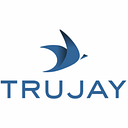In the present time, there is a great number of products and services to choose from. When you live in so competitive world, it’s getting harder to build sustained customer relationships experience, increase revenue, and customer loyalty.
With CRM platforms, it’s much easier for your business to succeed. However, due to a big number of CRM platforms in today’s business market, users are getting more confused, having too many options to choose from.
In this article, we’ll highlight the main distinguishing features of two CRM platforms, Capsule vs HubSpot CRM, to investigate some aspects of their usage.
Main Management Features: Capsule vs HubSpot CRM
- Contact management
With Capsule CRM, you are able to track all history, add notes, save and send emails from any client into Capsule, or even share contacts database with co-workers. You can add or finish tasks, attach various files or agreements for each customer.
The HubSpot CRM allows you to save valuable time and make contact data progress faster thanks for these three key areas:
- Free CRM
- Lead nurturing tool
- Campaign analytics
2. Task management
Capsule CRM keeps your tasks organized according to the specific contacts, opportunities or cases. With a well-profound organization of information and data files, your process will become more efficient and profitable. You can also describe nature and details under each task.
HubSpot CRM provides you with a tool that helps to track your agenda and complete each task on time. Sales Hub Professional or Enterprise allows you to create and automate tasks. In your account, you can move to your contacts, deals, companies or tickets. Besides, you can install a HubSpot mobile app for Android or iOS and create new tasks and navigate to them later.
3. Sales pipeline management
With Capsule CRM you are able to track and gather reports on your business. In addition, you have an opportunity to see a sales history, keep track of every potential sale with a customer, and know its value. Having the whole picture with a visual pipeline, you can manage the workflow and sales opportunities much easier.
The HubSpot CRM is quite similar to the Capsule CRM and it gives you a modern view of your sales pipeline and various ways to sort your deals. You don’t need to do tedious manual work, registering calls or emails. There is an automatic activity tracking for every lead.
Things that you can do: Capsule vs HubSpot CRM
Capsule CRM:
- Create a contact list and send group emails
- Store and share contacts database with colleagues
- Manage cases, to-do lists, calendar, sales pipelines
- Organize data
- Track timeline activity
- Create new tasks and share them with co-workers
- Track selling process
- Integrate the platform with Google Apps
- Identify your contacts
HubSpot CRM:
- Log and track emails
- Use the documents tool
- Update CRM automatically
- Sort contacts
- Use lists and social monitoring tool
- Create email templates
- Create and share meeting links
- Campaign analytics tool
- Create and use snippets
- Use sequences tool
- Add videos, pictures to CRM emails
Pricing
Capsule CRM offers its users three possible plans:
- The free version
- Capsule ‘Professional’
- Capsule ‘Teams’
The main differences between each plan lie in the size of storage and contact files and access to the advanced features. Let’s look closer at each plan.
The free version of Capsule:
- Only for two users
- Can store up to 250 contacts
- Storage limit — 10MB
The ‘Professional’ version of Capsule:
- Costs $12 per user, per month
- Can store up to 50000 contacts
- Storage limit — 10 GB per user
- Access to unlimited Cases, Tracks, Custom Fields, Sales Opportunities
- Premium Integrations including G Suite, Xero, MailChimp, Wufoo & more
- iOS/Android Mobile App
- Activity and Sales Reporting
The ‘Teams’ version of Capsule:
- Costs $4 per user, per month
- Can store up to 100000 contacts
- Storage limit — 20GB per user
- User Roles and Restrictions
- Custom Activity Types
- Custom Google Data Studio Reports
- Advanced Sales Reporting
HubSpot CRM is free for users with no limits on their numbers.
However, if you want to have full access to all of HubSpot’s features, the Starter version will cost $50 per user per month.
- Starter and Professional — $800 per user per month
- Enterprise — $3200 per user per month
Starter and Professional versions may include up to 1000 contacts, where Enterprise — up to 10000 contacts. Let’s look at more features of each version:
‘Starter’ version:
- Capture and convert leads
- Understand your leads
- Engage your leads
‘Professional’ version:
- Automate and personalize your marketing
- Get found online
- Optimize conversion rates
- Measure traffic and conversions
‘Enterprise’ version:
- Manage your teams and brands
- Extend the platform
- Analyze revenue with full control
Summing up
Take into account all the above-mentioned features between Capsule and HubSpot CRM. Come up with the right decision in order to boost the efficiency of your business and make it succeed. More detailed information about these two CRMs you find here.
When you decide on what platform you can meet and realize your goals, you will need to transfer your data from one CRM to another. You can perform this with an automated Trujay’s migration service. Trujay will help you to move your data quickly and with no risks.
Speak with a Trujay expert or get started with Trujay’s Self-Service Wizard. These are the best ways to get your migration process successful.
